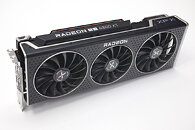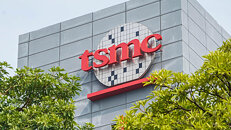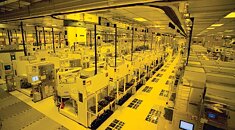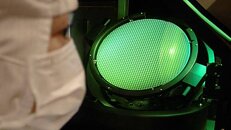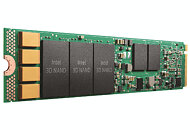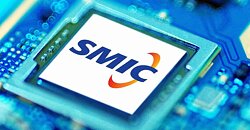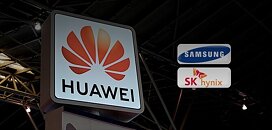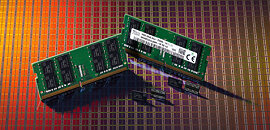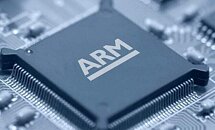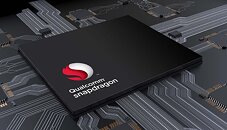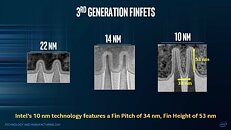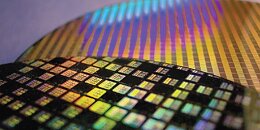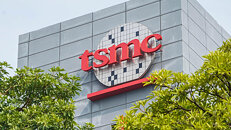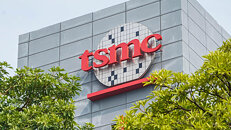Apr 13th, 2025 14:31 EDT
change timezone
Latest GPU Drivers
New Forum Posts
- Regarding fan noise (3)
- SK hynix A-Die (Overclocking thread) only for RYZEN AM5 users (29)
- What are you playing? (23376)
- RX 9000 series GPU Owners Club (308)
- What is going to be your next tech upgrade? just curious :) (37)
- How to relubricate a fan and/or service a troublesome/noisy fan. (215)
- best ram to buy for my usage and system specs? (18)
- Dell Latitude 5420 - i7 1185G7 (2)
- Have you got pie today? (16662)
- AAF Optimus Modded Driver For Windows 10 & Windows 11 - Only for Realtek HDAUDIO Chips (390)
Popular Reviews
- Thermaltake TR100 Review
- The Last Of Us Part 2 Performance Benchmark Review - 30 GPUs Compared
- TerraMaster F8 SSD Plus Review - Compact and quiet
- Zotac GeForce RTX 5070 Ti Amp Extreme Review
- ASUS GeForce RTX 5080 TUF OC Review
- ASRock Z890 Taichi OCF Review
- Sapphire Radeon RX 9070 XT Pulse Review
- Sapphire Radeon RX 9070 XT Nitro+ Review - Beating NVIDIA
- Upcoming Hardware Launches 2025 (Updated Apr 2025)
- AMD Ryzen 7 9800X3D Review - The Best Gaming Processor
Controversial News Posts
- NVIDIA GeForce RTX 5060 Ti 16 GB SKU Likely Launching at $499, According to Supply Chain Leak (181)
- MSI Doesn't Plan Radeon RX 9000 Series GPUs, Skips AMD RDNA 4 Generation Entirely (146)
- Microsoft Introduces Copilot for Gaming (124)
- NVIDIA Sends MSRP Numbers to Partners: GeForce RTX 5060 Ti 8 GB at $379, RTX 5060 Ti 16 GB at $429 (123)
- Nintendo Confirms That Switch 2 Joy-Cons Will Not Utilize Hall Effect Stick Technology (105)
- Over 200,000 Sold Radeon RX 9070 and RX 9070 XT GPUs? AMD Says No Number was Given (100)
- Nintendo Switch 2 Launches June 5 at $449.99 with New Hardware and Games (99)
- NVIDIA PhysX and Flow Made Fully Open-Source (77)
News Posts matching #US
Return to Keyword BrowsingGPUs to See Price Increase Due to Import Tariffs, Other PC Components to Follow
Yesterday, we have reported that ASUS is officially increasing the prices of their graphics cards and motherboards, due to increased component and logistics costs. What the company meant by that was not exactly clear to everyone, as it looked like the company has adjusted to the current market prices exceeding the MSRP of components like graphics cards. The GPUs are today selling at much higher prices compared to the original MSRP and it is representing a real problem for consumers. Today, we get to see what is the underlying problem behind the announcement we saw yesterday and if we are going to see more of that in the close future.
According to the New York Times, the Chinese import tariff exemptions have expired with the arrival of a new year (2021) and we can expect the tariffs to start from 7.5%-25%, which will massively increase component costs. A Reddit user has noted that MSRP will increase about $80 for every major GPU manufacturer like ASUS, GIGABYTE, PNY, Zotac, etc. so we are expecting MSRP adjustment from other companies to follow just like ASUS did. The import tariff exemptions are also supposed to increase MSRPs of other PC components like motherboards, SSDs, PSUs, cases... everything without exemption. As a product of a trade war between China and the Trump administration, it remains a question will these tariffs get easier shortly, so consumers can afford their desired components.
According to the New York Times, the Chinese import tariff exemptions have expired with the arrival of a new year (2021) and we can expect the tariffs to start from 7.5%-25%, which will massively increase component costs. A Reddit user has noted that MSRP will increase about $80 for every major GPU manufacturer like ASUS, GIGABYTE, PNY, Zotac, etc. so we are expecting MSRP adjustment from other companies to follow just like ASUS did. The import tariff exemptions are also supposed to increase MSRPs of other PC components like motherboards, SSDs, PSUs, cases... everything without exemption. As a product of a trade war between China and the Trump administration, it remains a question will these tariffs get easier shortly, so consumers can afford their desired components.

Hedge Fund Urges Intel to Outsource Chip Production: Reuters
Intel is familiar with chip manufacturing problems since the company started the development of a 10 nm silicon semiconductor node. The latest node is coming years late with many IPs getting held back thanks to the inability of the company to produce it. All of Intel's chip production was historically happening at Intel's facilities, however, given the fact that the demand for 14 nm products is exceeding production capability, the company was forced to turn to external foundries like TSMC to compensate for its lack of capacity. TSMC has a contract with Intel to produce silicon for things like chipsets, which is offloading a lot of capacity for the company. Today, thanks to the exclusive information obtained by Reuters, we have information that a certain New York hedge fund, Third Point LLC, is advising the company about the future of its manufacturing.
The hedge fund is reportedly accounting for about one billion USD worth of assets in Intel, thus making it a huge and one influencing shareholder. The Third Point Chief Executive Daniel Loeb wrote a letter to Intel Chairman Omar Ishrak to take immediate action to boost the company's state as a major provider of processors for PCs and data centers. The company has noted that Intel needs to outsource more of its chip production to satisfy the market needs, so it can stay competitive with the industry. The poor performance of Intel has reflected on the company shares, which have declined about 21% this year. This has awoken the shareholders and now we see that they are demanding more aggressiveness from the company and a plan to outsource more of the chip production to partner foundries like TSMC and Samsung. It remains to be seen how Intel responds and what changes are to take place.
The hedge fund is reportedly accounting for about one billion USD worth of assets in Intel, thus making it a huge and one influencing shareholder. The Third Point Chief Executive Daniel Loeb wrote a letter to Intel Chairman Omar Ishrak to take immediate action to boost the company's state as a major provider of processors for PCs and data centers. The company has noted that Intel needs to outsource more of its chip production to satisfy the market needs, so it can stay competitive with the industry. The poor performance of Intel has reflected on the company shares, which have declined about 21% this year. This has awoken the shareholders and now we see that they are demanding more aggressiveness from the company and a plan to outsource more of the chip production to partner foundries like TSMC and Samsung. It remains to be seen how Intel responds and what changes are to take place.
DRAM ASP to Recover from Decline in 1Q21, with Potential for Slight Growth, Says TrendForce
The DRAM market exhibits a healthier and more balanced supply/demand relationship compared with the NAND Flash market because of its oligopolistic structure, according to TrendForce's latest investigations. The percentage distribution of DRAM supply bits by application currently shows that PC DRAM accounts for 13%, server DRAM 34%, mobile DRAM 40%, graphics DRAM 5%, and consumer DRAM (or specialty DRAM) 8%. Looking ahead to 1Q21, the DRAM market by then will have gone through an inventory adjustment period of slightly more than two quarters. Memory buyers will also be more willing to stock up because they want to reduce the risk of future price hikes. Therefore, DRAM prices on the whole will be constrained from falling further. The overall ASP of DRAM products is now forecasted to stay generally flat or slightly up for 1Q21.
China Develops Tools for 28 nm Silicon Manufacturing
When the US decided to impose sanctions on all US-made technology use in foreign countries (China), the Chinese semiconductor manufacturing industry seemed at the time that it would just completely stop. Without the tools to manufacture silicon, Chinese manufacturers would need to turn to other countries to search for a possible solution. That, however, turned out impossible as the US administration has decided to stop the silicon from going into the hands of Chinese companies, by making a condition that any US-made technology can not get to China. Many of the parts for silicon manufacturing are designed in the US, so they have the power to restrict the use.
Today, in a surprising turn of events, we have information that Shanghai Micro Electronic Equipment (SMEE) has developed a deep ultraviolet (DUV) lithography scanner that is set for delivery in 2021. With a plan to deliver it in the fourth quarter of 2021, SMEE has designed this DUV scanner for the production of 28 nm node. While not being the most advanced node available to date, it is a significant start for Chinese technology independence. ASML, the producer of such scanners, used to be one of the few options there, however, it just gained a competitor. China will deliver its new silicon on a 28 nm process at the end of 2021. Pictured below, you can see how the scanner from SMEE looks like.
Today, in a surprising turn of events, we have information that Shanghai Micro Electronic Equipment (SMEE) has developed a deep ultraviolet (DUV) lithography scanner that is set for delivery in 2021. With a plan to deliver it in the fourth quarter of 2021, SMEE has designed this DUV scanner for the production of 28 nm node. While not being the most advanced node available to date, it is a significant start for Chinese technology independence. ASML, the producer of such scanners, used to be one of the few options there, however, it just gained a competitor. China will deliver its new silicon on a 28 nm process at the end of 2021. Pictured below, you can see how the scanner from SMEE looks like.

Samsung 14 nm Chip Orders from China Surge
Chinese IC designers have been left without reliable silicon manufacturers for some time now, as the US administration has imposed a ban on all Chinese manufacturers. That resulted in them having to gain the approval of the US administration to use any US-made technology for the production of Chinese goods. In light of that situation, Chinese clients have begun searching for a new place to manufacture their silicon. According to the report from DigiTimes, their sources indicate that Chinese clients are supposedly having an increased interest in Samsung's silicon manufacturing. The company has seen a surge in chip orders for its 14 nm node, with a report saying that Chinese customers are looking at even larger nodes as well.
This is quite an interesting situation and we have to wait and see how much of Samsung's total silicon manufacturing revenue will the Chinese clients contribute. That specific information should come in any of the next earnings calls if the company chooses to disclose it.
This is quite an interesting situation and we have to wait and see how much of Samsung's total silicon manufacturing revenue will the Chinese clients contribute. That specific information should come in any of the next earnings calls if the company chooses to disclose it.
TOP500 Expands Exaflops Capacity Amidst Low Turnover
The 56th edition of the TOP500 saw the Japanese Fugaku supercomputer solidify its number one status in a list that reflects a flattening performance growth curve. Although two new systems managed to make it into the top 10, the full list recorded the smallest number of new entries since the project began in 1993.
The entry level to the list moved up to 1.32 petaflops on the High Performance Linpack (HPL) benchmark, a small increase from 1.23 petaflops recorded in the June 2020 rankings. In a similar vein, the aggregate performance of all 500 systems grew from 2.22 exaflops in June to just 2.43 exaflops on the latest list. Likewise, average concurrency per system barely increased at all, growing from 145,363 cores six months ago to 145,465 cores in the current list.
The entry level to the list moved up to 1.32 petaflops on the High Performance Linpack (HPL) benchmark, a small increase from 1.23 petaflops recorded in the June 2020 rankings. In a similar vein, the aggregate performance of all 500 systems grew from 2.22 exaflops in June to just 2.43 exaflops on the latest list. Likewise, average concurrency per system barely increased at all, growing from 145,363 cores six months ago to 145,465 cores in the current list.

TSMC Approves 3.5 Billion Dollar Arizona Foundry
TSMC plans to open a new 3.5 billion dollar foundry in Arizona with a new wholly-owned US subsidiary. The new foundry will begin construction in 2021 with an expected completion date of 2024. The new facility will target production volumes of 20,000 wafers per month with 5 nm production being the main priority. TSMC will be joining Intel who also produces chips in Arizona enabling them to tap into this well-established supply chain. TSMC plans to employ 1,600 staff at the facility which will be their most advanced facility outside of Taiwan. The new foundry will likely be popular with US customers and military applications requiring more secure facilities.

TSMC Witnesses 28 nm Process Demand Soar
Recently, the technology trade war between the US and China has been very challenging for Chinese semiconductor manufacturers. With a new regulation to prevent the use of US technology on foreign lands, the US administration has managed to prevent many companies from manufacturing the latest processes, and they have lost a part of their customer base. In awe of this craze, it seems like many silicon designers are storming to the competing foundries to get their designs taped out. According to the DigiTimes report, TSMC has seen a massive spike in demand for its 28 nm semiconductor node. The surge is going to reach a peak of almost 100% in the fourth quarter this year. The growth is mainly being driven by Chinese customers who are switching their manufacturing facilities. The report indicated that Qualcomm, as well, is a big part of the growth besides the remaining companies.
IP Theft: UMC Pleads Guilty to US Court Charges of Trade Secret Theft, Faces $60 Million Fine
Taiwanese corporation United Micro Electronics (UMC) has pled guilty on charges of trade theft. The charges, originally pressed in November 2018 by US authorities, placed UMC and China's Fujian Jinhua in hot waters under suspicion of stealing trade secrets from US-based Micron technologies, one of the world's foremost players in memory semiconductor technologies. UMC's guilty plea serves as a way for the company to avoid heavier penalties, and includes a provision for the company's assistance in investigating Fujian Jinhua's actions in regards to this IP theft.
The whole story revolves around UMC's hiring of three Micron employees from Micron's subsidiary in Taiwan, Micron Memory Taiwan (MMT), back around September 2015. At least two of these employees migrated Micron trade secrets to UMC, which then inked a deal with china's Fujian Jinhua for the development of 32nm DRAM and "32Snm" DRAM technologies that Fujian Jinhua could then deploy for the manufacture of memory products - a deal which had Fujian Jinhua paying $300 million for equipment purchase plus $400 million for technology development to UMC. This all fell in line with the Chinese government's Made in China 2025 plan, which aims to bring the country to semiconductor independence from the western world. UMC says that the company itself didn't partake in the underhanded IP delivery to Fujian Jinhua, claiming instead that rogue employees did so of their own volition. The company further states that it only pleads guilty because according to the US Trade Secrets Act, the company still bears legal responsibilities for employee acts, whether or not top management is involved.
The whole story revolves around UMC's hiring of three Micron employees from Micron's subsidiary in Taiwan, Micron Memory Taiwan (MMT), back around September 2015. At least two of these employees migrated Micron trade secrets to UMC, which then inked a deal with china's Fujian Jinhua for the development of 32nm DRAM and "32Snm" DRAM technologies that Fujian Jinhua could then deploy for the manufacture of memory products - a deal which had Fujian Jinhua paying $300 million for equipment purchase plus $400 million for technology development to UMC. This all fell in line with the Chinese government's Made in China 2025 plan, which aims to bring the country to semiconductor independence from the western world. UMC says that the company itself didn't partake in the underhanded IP delivery to Fujian Jinhua, claiming instead that rogue employees did so of their own volition. The company further states that it only pleads guilty because according to the US Trade Secrets Act, the company still bears legal responsibilities for employee acts, whether or not top management is involved.

SK hynix to Acquire Intel NAND Flash Memory Business for $9 Billion
SK hynix and Intel today announced that they have signed an agreement on Oct. 20, KST, under which SK hynix would acquire Intel's NAND memory and storage business for US $9 billion. The transaction includes the NAND SSD business, the NAND component and wafer business, and the Dalian NAND memory manufacturing facility in China. Intel will retain its distinct Intel Optane business.
SK hynix and Intel will endeavor to obtain required governmental approvals expected in late 2021. Following receipt of these approvals, SK hynix will acquire from Intel the NAND SSD business (including NAND SSD-associated IP and employees), as well as the Dalian facility, with the first payment of US $7 billion. SK hynix will acquire from Intel the remaining assets, including IP related to the manufacture and design of NAND flash wafers, R&D employees, and the Dalian fab workforce, upon a final closing, expected to occur in March 2025 with the remaining payment of US $2 billion. Per the agreement, Intel will continue to manufacture NAND wafers at the Dalian Memory Manufacturing Facility and retain all IP related to the manufacture and design of NAND flash wafers until the final closing.
SK hynix and Intel will endeavor to obtain required governmental approvals expected in late 2021. Following receipt of these approvals, SK hynix will acquire from Intel the NAND SSD business (including NAND SSD-associated IP and employees), as well as the Dalian facility, with the first payment of US $7 billion. SK hynix will acquire from Intel the remaining assets, including IP related to the manufacture and design of NAND flash wafers, R&D employees, and the Dalian fab workforce, upon a final closing, expected to occur in March 2025 with the remaining payment of US $2 billion. Per the agreement, Intel will continue to manufacture NAND wafers at the Dalian Memory Manufacturing Facility and retain all IP related to the manufacture and design of NAND flash wafers until the final closing.
NXP Advances 5G with New Gallium Nitride Fab in Arizona
NXP Semiconductors N.V. today announced the grand opening of its 150 mm (6-inch) RF Gallium Nitride (GaN) fab in Chandler, Arizona, the most advanced fab dedicated to 5G RF power amplifiers in the United States. The new internal factory combines NXP's expertise as the industry leader in RF power and its high-volume manufacturing know-how, resulting in streamlined innovation that supports the expansion of 5G base stations and advanced communication infrastructure in the industrial, aerospace and defense markets.
US Government Could Blacklist Chinese Chipmaker SMIC
The Trump administration has reportedly been considering adding to Chinese chipmaker SMIC (Semiconductor Manufacturing International Corporation) to the trade blacklist of Chinese companies, restricting the company of doing any business with the United States and/or with any of its affiliates. The original report comes from Reuters and it states that the move came from Pentagon after considering whatever SMIC should be placed on a blacklist. It is so far unclear if other US agencies support the decision, however, it should be public in the near future. The company has received the news on Saturday and it was "in complete shock" about the decision. Shortly after the news broke, SMIC stock has fallen as much as 15% amid the possible blacklist. If SMIC would like to continue working with American suppliers, it would need to seek a difficult-to-obtain license from the government.
Update 28th September: The United States government hasofficially imposed sanctions on the Chinese chipmaker SMIC. The company is now under US sanctions and is placed on a trade blacklist.
Update 28th September: The United States government hasofficially imposed sanctions on the Chinese chipmaker SMIC. The company is now under US sanctions and is placed on a trade blacklist.
China Focuses on 3rd Generation Semiconductors in Aim for Self-Sufficiency
The People Republic of China has always released 5-year plans that have a goal of achieving something. And in the latest, 14th 5-year plan China has an eye on the semiconductor industry. Specifically, China wants to develop independence and self-sufficiency when it comes to semiconductors. With tensions between the US and China raising, it is a smart move to have domestic technology to rely on. The new plan starts next year, 2021, and ends in the year 2025. In that period, China will devote financial resources and human workforce that will hopefully enable its goal. The primary aim for this 14th plan seems to be 3rd generation semiconductor technology. What is meant by that is a technology like gallium nitride (GaN) and silicon carbide (SiC). These technologies would be a nice addition to China's portfolio of semiconductors, so we should wait and see what comes out of it.
Samsung and SK Hynix to Impose Sanctions Against Huawei
Ever since the Trump administration imposed sanctions against Huawei to stop it from purchasing parts from third-party vendors to bypass the ban announced back in May, some vendors continued to supply the company. So it seems like some Korean manufacturers will be joining the doings of the US government, and apply restrictions to Huawei. According to the reports of South Korean media outlets, Samsung Electronics and SK Hynix will be joining the efforts of the US government and the Trump administration to impose sanctions against Chinese technology giant - Huawei.
It is reported that on September 15th, both Samsung and SK Hynix will stop any shipments to Huawei, where Samsung already stopped efforts for creating any new shipments. SK Hynix is said to continue shipping DRAM and NAND Flash products until September 14th, a day before the new sanctions are applied. Until the 14th, Huawei will receive some additional chips from SK Hynix. And it is exactly SK Hynix who is said to be a big loser here. It is estimated that 41.2% of SK Hynix's H1 2020 revenue came from China, most of which was memory purchased for Huawei phones and tablets. If the company loses Huawei as a customer, it would mean that the revenue numbers will be notably lower.
It is reported that on September 15th, both Samsung and SK Hynix will stop any shipments to Huawei, where Samsung already stopped efforts for creating any new shipments. SK Hynix is said to continue shipping DRAM and NAND Flash products until September 14th, a day before the new sanctions are applied. Until the 14th, Huawei will receive some additional chips from SK Hynix. And it is exactly SK Hynix who is said to be a big loser here. It is estimated that 41.2% of SK Hynix's H1 2020 revenue came from China, most of which was memory purchased for Huawei phones and tablets. If the company loses Huawei as a customer, it would mean that the revenue numbers will be notably lower.
COVID-19 Drives Rise in Global Fab Equipment Spending, SEMI Reports
Soaring pandemic-inspired demand for chips that power everything from communications and IT infrastructures to personal computing, gaming and healthcare electronics will drive an 8% increase in global fab equipment spending in 2020 and a 13% increase in 2021, SEMI announced today in its World Fab Forecast report. Rising demand for semiconductors for datacenter infrastructures and server storage along with the buildup of safety stock as U.S.-China trade tensions intensify are also contributing to this year's growth.
The bullish trend for overall fab equipment investments comes as the semiconductor industry recovers from a 9% decline in fab spending in 2019 and navigates a roller-coaster 2020 with actual and projected spending drops in the first and third quarters mixed with second- and fourth-quarter increases. See figure below:
The bullish trend for overall fab equipment investments comes as the semiconductor industry recovers from a 9% decline in fab spending in 2019 and navigates a roller-coaster 2020 with actual and projected spending drops in the first and third quarters mixed with second- and fourth-quarter increases. See figure below:

NVIDIA GeForce RTX Ampere AIB Cards Listed on Overclockers UK, Official EU/UK Pricing Published
NVIDIA just yesterday made a big announcement and forced everyone to turn their head and check out what are they doing. Today, we are finding the first listings of Add-In-Board (AIB) partner cards and their respective price points. Thanks to the findings of a Reddit user u/slyquick we have information about the pricing of RTX Ampere cards in the UK/EU, specifically on the Overclockers UK website. There are listed several models of AIB cards, covering the whole range of RTX 3070, 3080, and 3090. NVIDIA has officially published the UK/EU pricing of the cards with Founders Edition (FE) GeForce RTX 3070 costing $499 in the US, costing about £469. The OCUK website lists RTX 3070 AIB cards at £449 and the highest costing models are about £499.
Next up comes GeForce RTX 3080, a GPU costing $699 in the US, is being officially listed for £649 by NVIDIA. On the OCUK website pricing starts at £639, and goes as high as £848.99 for ASUS ROG Strix Gaming OC card. The bigger brother of the RTX Ampere lineup - the RTX 3090 - is priced at $1499, while NVIDIA lists it at £1399 for EU/UK pricing. AIB cards are going anywhere from the NVIDIA FE card at £1,399, all the way up to at £1589.99. This is a big markup compared to the FE model, however, AIB cards are known for providing better cooling solutions and better power delivery circuit.
Next up comes GeForce RTX 3080, a GPU costing $699 in the US, is being officially listed for £649 by NVIDIA. On the OCUK website pricing starts at £639, and goes as high as £848.99 for ASUS ROG Strix Gaming OC card. The bigger brother of the RTX Ampere lineup - the RTX 3090 - is priced at $1499, while NVIDIA lists it at £1399 for EU/UK pricing. AIB cards are going anywhere from the NVIDIA FE card at £1,399, all the way up to at £1589.99. This is a big markup compared to the FE model, however, AIB cards are known for providing better cooling solutions and better power delivery circuit.
DigiTimes Research: Korean Memory Makers See Output Value Surge in Q2
According to the latest DigiTimes Research report, it is said that Korean memory makers have experienced a surge in chip output value. Korean memory manufacturers are Samsung Electronics and SK Hynix, which both have seen a massive growth of 22.1% on a yearly basis and 13.9% sequentially in the second quarter of 2020. This is no small feat as the demand for memory in the smartphone industry has been slowed in that period due to the COVID pandemic, however, it was offset by strong demand from servers and notebooks. When the output of Korean memory giants is fused, Samsung and SK Hynix had combined revenue of KRW22.9 trillion or about 20.8 billion USD. The demand for memory is expected to continue its growth due to the 5G headset market.

NVIDIA Might Close the Deal of Arm Acquisition Before Summer Ends
Last time we have reported that the situation with NVIDIA taking over Arm is getting serious, and it was reported that their talks were getting quite advanced. Today, we are getting new information regarding this, from the sources of Evening Standard. According to their information, the deal is supposed to be done by the time summer ends. That puts the timing of the deal very close to the present, so we could expect to see more details very soon. The venture is worth a lot, as Softbank is asking as much as 40 billion GBP, which is around 52.62 billion USD. It also goes to show just how much Arm Ltd. has grown in value from the 31 billion USD number Softbank paid in 2016 to acquire it.

Qualcomm Could Deliver Chips to Huawei
In the ave of the news that Trump administration has forbidden TSMC to have Huawei as its customer, Huawei seems to be exploring new options for sourcing the best performing mobile processors. As the company has turned to the Chinese SMIC semiconductor factory, it still needs a backup plan in the case of Chinese semiconductor manufacturing flops. So to combat US sanctions, Huawei will use already made chips form the US company - Qualcomm. By sourcing the processors from Qualcomm, Huawei is losing some benefits of customs design like better system integration, however, it will gain quite powerful mobile processors. As Qualcomm is known for providing the fastest processors for Android smartphones, Huawei has ensured that it remains competitive. Qualcomm is reportedly now negotiating with the US government about delivering the chips to Huawei, and if it is allowed, Qualcomm will gain a big customer.
US Aims to Bring Chip Manufacturing Industry Back to Its Soil
The US is one of the leading countries when it comes to chip design technologies and know-how; however, when it comes to actual manufacturing those designs, it's fallen from grace in recent years. Once the leader in both design and manufacturing, nowadays the US can only claim some 12% of the world's semiconductor production. The rest of it is mainly produced in Asia, where TSMC stands as the industry juggernaut, with other companies stretching across Taiwan, Japan, and most recently (and surging) China - the country has more than doubled its 300 mm manufacturing sites since 2017. This places some strain on the US' dependence from foreign shipments; and the country is looking to bridge that gap in its perceived national interests by investing heavily in silicon manufacturing to be brought back to the country. Recent slippages from Intel when it comes to keeping its manufacturing lead have apparently also instilled preoccupation amongst US policy makers.

Intel Accused of Infringing FinFET Patents of the Microelectronics Institute of the Chinese Academy of Sciences
Today we are finding out that Intel has allegedly infringed FinFET patents of Microelectronics Institute of the Chinese Academy of Sciences. On July 28th, the patent review committee has heard an application that accuses Intel of violating a patent 201110240931.5 commonly referred to as FinFET patent. The patent dates back to 2011, and it comes from the Chinese Academy of Sciences, mainly Microelectronics Institute. The Chinese patent holders are asking for as much as 200 million yuan, which roughly translates to 28,664,380 US dollars. Given that this patent infringement is a major one for Intel, it is sure that a company will be pursued extensively in court. All of the Intel's semiconductors use FinFET technology, and if this is true, the violation is rather big. For more in detail reading, please refer to the source which goes through the history of Intel and Microelectronics Institute patent violation filing.
DigiTimes Research: China 14th 5-year Plan to see IC Foundry Capacity Expand 40%
China's upcoming 14th five-year plan (2021-2025) will continue to highlight technology and capacity upgrades as the core of its semiconductor self-sufficiency strategy, with foundry capacity projected to expand 40% from the preceding plan and fabrication process expected to advance to 7 nm, according to Digitimes Research.
Bolstered by national policies in the 13th five-year plan, China's IC manufacturing industry is expected to see combined revenues double to CNY240 billion (US$34.28 million) in 2020 from 2016, and may also move 12 nm to production by the end of the year after having volume produced 14 nm process.
Bolstered by national policies in the 13th five-year plan, China's IC manufacturing industry is expected to see combined revenues double to CNY240 billion (US$34.28 million) in 2020 from 2016, and may also move 12 nm to production by the end of the year after having volume produced 14 nm process.

TSMC to Stop Orders from Huawei in September
TSMC, one of the largest semiconductor manufacturing foundries, has officially confirmed that it will stop all orders from Chinese company Huawei Technologies. The Taiwanese silicon manufacturer has decided to comply with US regulations and will officially stop processing orders for Huawei on September 14th of this year. Precisely, the company was receiving orders from HiSilicon, a subsidiary of Huawei Technologies that focuses on creating custom silicon. Under the new regulation by the US, all non-US companies must apply for a license to ship any American-made technology to Huawei. Being that many American companies like KLA Corporation, Lam Research, and Applied Materials ship their tools to many manufacturing facilities, it would be quite difficult for Huawei to manufacture its silicon anywhere. That is why Huawei has already placed orders over at Chinese SMIC foundry.

TSMC 5 nm Fab in Arizona will Change Global Semiconductor Supply Chain: Report
TSMC has just recently announced that they will be building a semiconductor factory in the US, thanks to the pressure from Trump administration. The 5 nm Fab will be built in Arizona, with construction starting in 2021. It will be finished in the year 2024 when the plant will operate at a capacity of 20,000 wafers per month. This is not a high number as TSMC Fabs usually operate at a rate of 100-150K wafers per month, however, the amazing thing is the location of the Fab. The US Fab in Arizona is set to change the global landscape of the semiconductor supply chain, as per the latest report from DigiTimes Research.
Arizona is a place in the US where lots of companies are building semiconductors. Intel, Raytheon, Microchip, ON Semiconductor, VLSI, Freescale, NXP, STMicroelectronics, Honeywell, Marvel, Amkor, Philips, and Western Digital have their facilities there and Arizona can be considered one of the key places for semiconductor manufacturing in the US. With TSMC adding their manufacturing facilities to that list as well, there could be a change in the supplier ecosystem. In light of the need for TSMC 5 nm Fab, the world's leading OSAT (Outsourced Semiconductor Assembly and Test) suppliers may be encouraged to set up local production in Arizona to help TSMC with its plans. A lot of OSAT providers are headquartered in Taiwan, however, if there is a need, they are possibly going to build their manufacturing facilities in Arizona. This alone could change the way semiconductor manufacturing facilities are supplied, and the US could become a major center of OSAT providers.
Arizona is a place in the US where lots of companies are building semiconductors. Intel, Raytheon, Microchip, ON Semiconductor, VLSI, Freescale, NXP, STMicroelectronics, Honeywell, Marvel, Amkor, Philips, and Western Digital have their facilities there and Arizona can be considered one of the key places for semiconductor manufacturing in the US. With TSMC adding their manufacturing facilities to that list as well, there could be a change in the supplier ecosystem. In light of the need for TSMC 5 nm Fab, the world's leading OSAT (Outsourced Semiconductor Assembly and Test) suppliers may be encouraged to set up local production in Arizona to help TSMC with its plans. A lot of OSAT providers are headquartered in Taiwan, however, if there is a need, they are possibly going to build their manufacturing facilities in Arizona. This alone could change the way semiconductor manufacturing facilities are supplied, and the US could become a major center of OSAT providers.

TSMC Says it Still Won't Build a Fab in the US
TSMC, as one of the largest silicon manufacturers in the world, has been subject to pressure from the Trump administration to build a Fab and manufacture silicon on US soil. The reasoning behind this is that the US government could order chips that are supposed to be used in military applications. For security reasons, they need to be manufactured on US grounds and "checked" by the US government. However, it seems like a Taiwanese company has no concrete plans to realize the building of the US Fab.
Thanks to the report of DigiTimes, TSMC has confirmed that they have resisted requests from the US government, and will not build a Fab on US soil for the government. They haven't dismissed the possibility of building one or silicon manufacturing facilities in the US completely. TSMC chairman Mark Liu has told DigiTimes previously that if the company wants to build a US Fab, it will do so because of consumer demand, not the government demand. And that is understandable. It is much easier to work with regular customers compared to the US government which would force a company to go through rigorous security levels to deliver chips.
Thanks to the report of DigiTimes, TSMC has confirmed that they have resisted requests from the US government, and will not build a Fab on US soil for the government. They haven't dismissed the possibility of building one or silicon manufacturing facilities in the US completely. TSMC chairman Mark Liu has told DigiTimes previously that if the company wants to build a US Fab, it will do so because of consumer demand, not the government demand. And that is understandable. It is much easier to work with regular customers compared to the US government which would force a company to go through rigorous security levels to deliver chips.
Apr 13th, 2025 14:31 EDT
change timezone
Latest GPU Drivers
New Forum Posts
- Regarding fan noise (3)
- SK hynix A-Die (Overclocking thread) only for RYZEN AM5 users (29)
- What are you playing? (23376)
- RX 9000 series GPU Owners Club (308)
- What is going to be your next tech upgrade? just curious :) (37)
- How to relubricate a fan and/or service a troublesome/noisy fan. (215)
- best ram to buy for my usage and system specs? (18)
- Dell Latitude 5420 - i7 1185G7 (2)
- Have you got pie today? (16662)
- AAF Optimus Modded Driver For Windows 10 & Windows 11 - Only for Realtek HDAUDIO Chips (390)
Popular Reviews
- Thermaltake TR100 Review
- The Last Of Us Part 2 Performance Benchmark Review - 30 GPUs Compared
- TerraMaster F8 SSD Plus Review - Compact and quiet
- Zotac GeForce RTX 5070 Ti Amp Extreme Review
- ASUS GeForce RTX 5080 TUF OC Review
- ASRock Z890 Taichi OCF Review
- Sapphire Radeon RX 9070 XT Pulse Review
- Sapphire Radeon RX 9070 XT Nitro+ Review - Beating NVIDIA
- Upcoming Hardware Launches 2025 (Updated Apr 2025)
- AMD Ryzen 7 9800X3D Review - The Best Gaming Processor
Controversial News Posts
- NVIDIA GeForce RTX 5060 Ti 16 GB SKU Likely Launching at $499, According to Supply Chain Leak (181)
- MSI Doesn't Plan Radeon RX 9000 Series GPUs, Skips AMD RDNA 4 Generation Entirely (146)
- Microsoft Introduces Copilot for Gaming (124)
- NVIDIA Sends MSRP Numbers to Partners: GeForce RTX 5060 Ti 8 GB at $379, RTX 5060 Ti 16 GB at $429 (123)
- Nintendo Confirms That Switch 2 Joy-Cons Will Not Utilize Hall Effect Stick Technology (105)
- Over 200,000 Sold Radeon RX 9070 and RX 9070 XT GPUs? AMD Says No Number was Given (100)
- Nintendo Switch 2 Launches June 5 at $449.99 with New Hardware and Games (99)
- NVIDIA PhysX and Flow Made Fully Open-Source (77)
